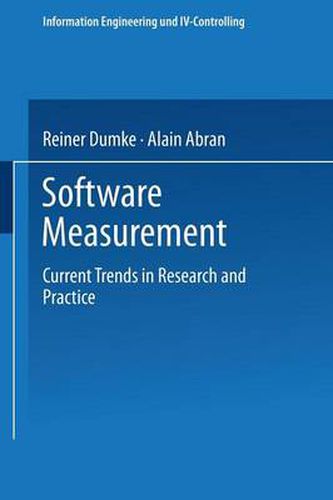Readings Newsletter
Become a Readings Member to make your shopping experience even easier.
Sign in or sign up for free!
You’re not far away from qualifying for FREE standard shipping within Australia
You’ve qualified for FREE standard shipping within Australia
The cart is loading…






This title is printed to order. This book may have been self-published. If so, we cannot guarantee the quality of the content. In the main most books will have gone through the editing process however some may not. We therefore suggest that you be aware of this before ordering this book. If in doubt check either the author or publisher’s details as we are unable to accept any returns unless they are faulty. Please contact us if you have any questions.
Software developers are faced with the challenge of making software systems and products of ever greater quality and safety, while at the same time being faced with the growing pressure of costs reduction in order to gain and maintain competitive advantages. As in any scientific and engineering discipline, reliable measurement is essential for talking on such a challenge. Software measurement is an excellent abstraction mechanism for learning what works and what doesn’t (Victor Basili). Measurement of both software process and products provides a large amount of basic information for the evaluation of the software development processes or the software products themselves. Examples of recent successes in software measurement span multiple areas, such as evaluation of new development methods and paradigms, quality and management improvement programs, tool-supporting initiatives and company wide measurement programs. The German Computer Science Interest (GI) Group of Software Metrics and the Canadian Interest Group in Software Metrics (CIM) have attended to these concerns in the recent years. Research initiatives were directed initially to the definition of software metrics and then to validation of the software metrics themselves. This was followed by more and more investigation into practical applications of software metrics and by critical analysis of the benefits and weaknesses of software measurement programs. Key findings in this area of software engineering have been published in some important books, such as Dumke and Zuse’s Theory and Practice of Software Measurement, Ebert and Dumke’s Software Metrics in Practice and Lehner, Dumke and Abran’s Software Metrics.
$9.00 standard shipping within Australia
FREE standard shipping within Australia for orders over $100.00
Express & International shipping calculated at checkout
This title is printed to order. This book may have been self-published. If so, we cannot guarantee the quality of the content. In the main most books will have gone through the editing process however some may not. We therefore suggest that you be aware of this before ordering this book. If in doubt check either the author or publisher’s details as we are unable to accept any returns unless they are faulty. Please contact us if you have any questions.
Software developers are faced with the challenge of making software systems and products of ever greater quality and safety, while at the same time being faced with the growing pressure of costs reduction in order to gain and maintain competitive advantages. As in any scientific and engineering discipline, reliable measurement is essential for talking on such a challenge. Software measurement is an excellent abstraction mechanism for learning what works and what doesn’t (Victor Basili). Measurement of both software process and products provides a large amount of basic information for the evaluation of the software development processes or the software products themselves. Examples of recent successes in software measurement span multiple areas, such as evaluation of new development methods and paradigms, quality and management improvement programs, tool-supporting initiatives and company wide measurement programs. The German Computer Science Interest (GI) Group of Software Metrics and the Canadian Interest Group in Software Metrics (CIM) have attended to these concerns in the recent years. Research initiatives were directed initially to the definition of software metrics and then to validation of the software metrics themselves. This was followed by more and more investigation into practical applications of software metrics and by critical analysis of the benefits and weaknesses of software measurement programs. Key findings in this area of software engineering have been published in some important books, such as Dumke and Zuse’s Theory and Practice of Software Measurement, Ebert and Dumke’s Software Metrics in Practice and Lehner, Dumke and Abran’s Software Metrics.